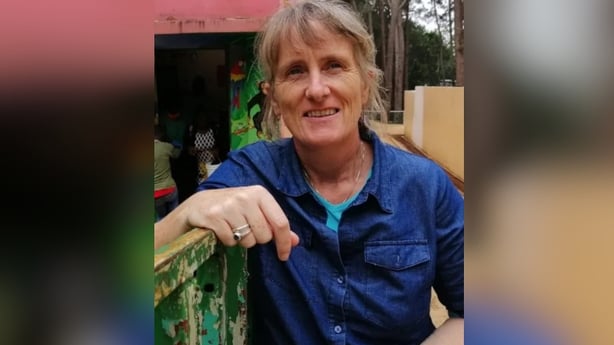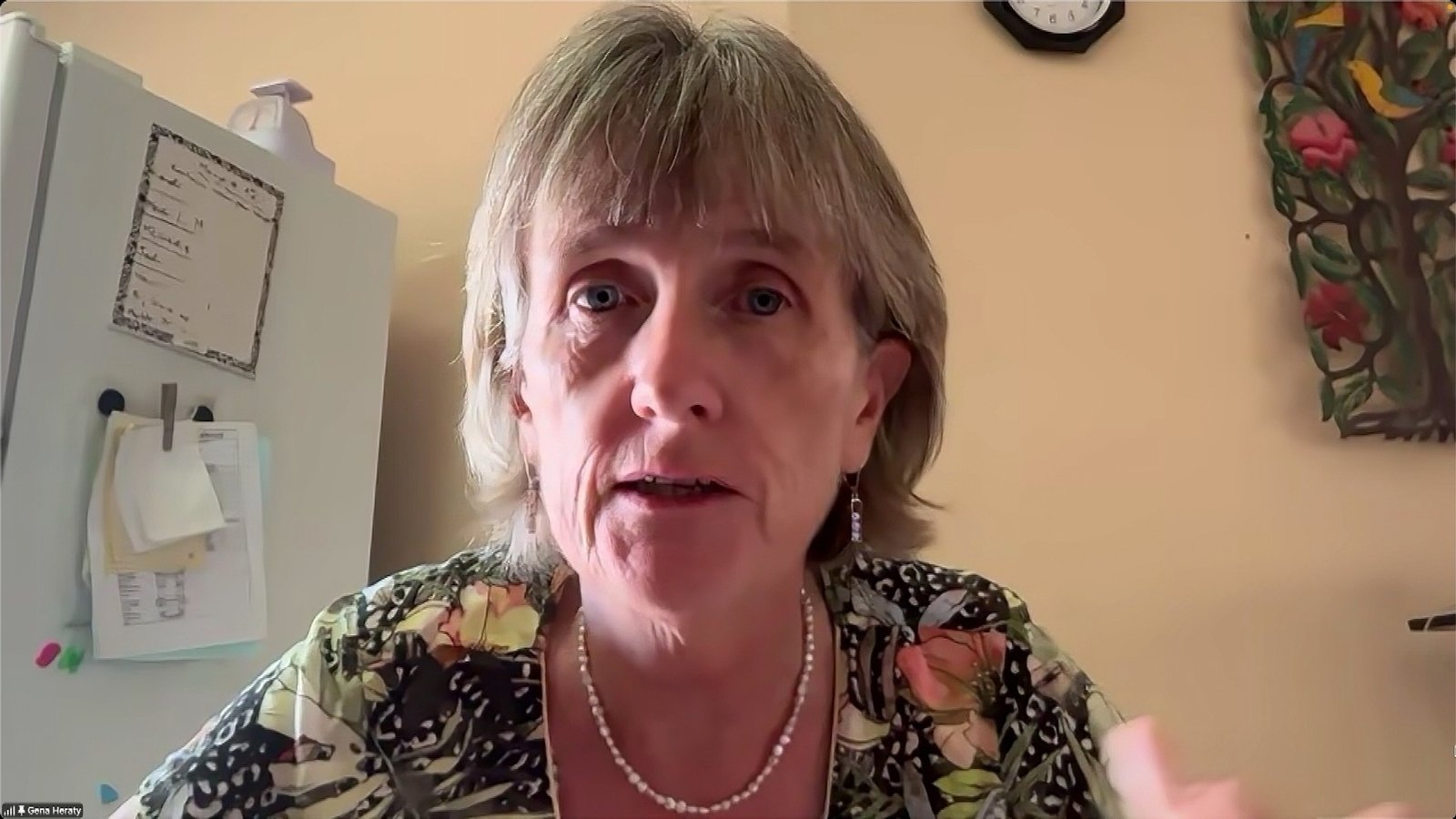Irish aid worker Gena Heraty has spoken of her ordeal following her release from kidnap in Haiti, explaining that kidnappings are “going on all over Haiti” while speaking of her continued efforts to help others.
Ms Heraty, a native of Westport in Co Mayo who is in her mid-50s, oversees the Sainte-Helene orphanage in the commune of Kenscoff, about 10km southeast of the capital, Port au Prince.
She was abducted along with six others and a child from the orphanage on 3 August. She was released last month after 27 days in captivity.
Speaking on RTÉ’s Six One News programme, Ms Heraty recalled the night of the kidnapping.
“For us it was a normal enough Saturday night, until around 3am or 3:30, I can’t remember exactly what time. All of a sudden we heard all this shouting, and all of these armed men were outside. We could see them through the windows, and they were shouting, ‘It’s the police, it’s the police’. Before you know it, the place is stormed,” she said.
“They cut through a bar and got into the house. They stormed the house, all these men with guns. It was terrifying really, because there were so many of them. I presumed it was me they came looking for.”
“I thought I was the only one they took. They led me over the mountain, it was pouring rain and we stayed in a house that they had taken over, and then they came in with another one of my ladies. I thought, ‘oh my God, they’ve taken two of us’.”
Ms Heraty said she was eventually brought to another house, where she was reunited with the other people who had been kidnapped from the orphanage.
“When I got over there, I saw there were two more people from my home … maybe a half an hour later, in come two of the ladies who had been working the night shift, and in comes one of the nurses and our little baby from the house, our little three-year-old.
“I realised there was nobody left in the house to take care of the severely disabled kids. It was just awful,” she said.

Gena Heraty oversees the Sainte-Helene orphanage in Kenscoff in Haiti
Ms Heraty said that the kidnappers were not violent but that they did not treat the hostages well.
“They didn’t take good care of us. We weren’t starved, but we were hungry. We were given limited amounts of food and limited access to drinking water. We would have had no drinking water, only for the fact that I said to them that they had to boil water for us,” she said.
“It was a dirty place, most of the time we didn’t have toilet paper. We didn’t have access to a toilet at night-time. In the morning, we’d go outside to a latrine. You were locked up all day, you couldn’t go anywhere.
“We felt we were much better off than so many others, because we knew that some people wouldn’t be given anything and would be tortured.
“We were roughed up a few times, that wasn’t nice and I’m not going to pretend it was. So, it’s all relative. There was nothing nice about the experience. They didn’t care. We could have dropped dead,” she added.
Ms Heraty said that her faith, prayers and belief that they would eventually be released was what got her through the ordeal.
“I’ve answered a call to come to Haiti and I believe I have a personal vocation to be here. I think it was believing that we were going to get out. We sang, I sang so many songs from my childhood, songs that meant things to me … the sense that we knew people were praying for us.
“The little boy that was in our care, he was amazing. He saw the blessed virgin, we couldn’t see her. He saw her, on more than one occasion and there was no doubt in his mind. So that was a sense of hope,” she said.
Upon her release, Ms Heraty learned that those who were left behind in the orphanage were forced to move due to the gangs returning, and that the oldest resident in their care had died while the hostages were in captivity.
“I was all excited, I was planning all the hugs I was going to give when I walked in the door at home. When we got there, there was nobody there because they all had moved. I didn’t know they had moved. They had to move because even in captivity, the gangs had come back to the orphanage again. That was a shock to the system,” she said.
“I walk in there to my welcome, my home, my family here – a wonderful welcome. And then the first thing I hear is that one of the girls, our oldest resident Yvonne, had died.
“When I was in captivity, I was thinking and worrying about her because I knew she wasn’t in the best of health. And I remember thinking, if I come back and one of the kids has died, I’ll be rip-roaring furious.
“And I was, because I’m convinced she wouldn’t have died if she didn’t have the trauma of that move.”
Despite her ordeal, Ms Heraty said she is going to stay in Haiti and continue to help and pray for others.
“This is my home. These are my kids. This is my family. What mother would leave her kids?” she said.
“We’re just part of the story. We’re a big story now, and obviously I’m from Ireland, so it’s a big story. But this is going on all over Haiti. Even this morning, there was somebody kidnapped very close to where we are.
“So many people are displaced. They have no place to go to. So now we have to work even harder to be a support to more people,” added Ms Heraty.
The UN has reported a 700% increase in gang recruitment in Haiti, including the use of children, in the first three months of this year.
With cuts to international aid having a severe impact, the number of Haitians internally displaced by ongoing conflict has now risen to close to 1.3 million.

